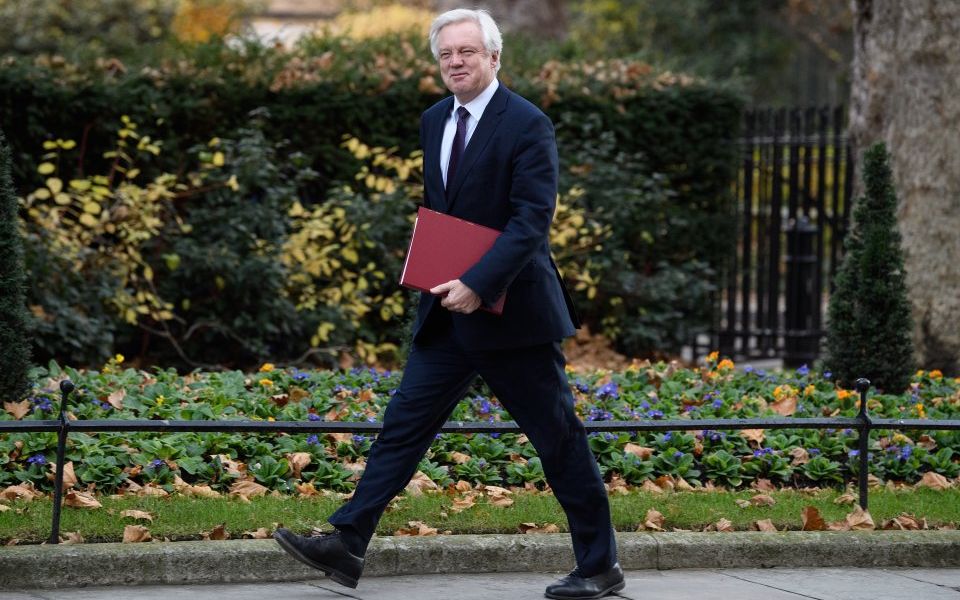Brexit secretary David Davis and minister Steve Baker resign arguing PM’s policy leaves UK in ‘weak’ and ‘inescapable’ position with EU

Brexit secretary David Davis has resigned, just nine months before the UK is to leave the EU, arguing Theresa May's new approach is damaging the country's position.
The Cabinet minister quit his position, saying "the current trend of policy and tactics" was making it look less and less likely that the government could "deliver on the mandate of the referendum, and on our manifesto commitment to leave the customs union and the Single Market".
His resignation has been followed by that of Brexit minister Steve Baker. DexEU colleague Suella Braverman is expected to follow.
In his letter to the Prime Minister, Davis said: "Whether it is the progressive dilution of what I thought was a firm Chequers agreement In February on right to diverge, or the unnecessary delays of the start of the white paper, or the presentation of a backstop proposal that omitted the strict conditions that I requested and believed that we had agreed, the general direction of policy will leave us in at best a weak negotiating position, and possibly an inescapable one.
"The Cabinet decision on Friday crystallised this problem. In my view the inevitable consequence of the proposed policies will be to make the supposed control by Parliament illusory rather than real."
Davis has threatened to resign during his time as head of the Department for Exiting the EU on several occasions. City A.M. reported that he was "absolutely livid" at the latest proposals, which were waved through on Friday with a bullish statement from the Prime Minister.
But the ex-minister argued the common rule book policy "hands control of large swathes of our economy to the EU and is certainly not returning control of our laws in any real sense".
In response, an embattled Theresa May argued that what the team had agreed was consistent with the party manifesto.
She added: "I do not agree with your characterisation of the policy we agreed at Cabinet on Friday. Parliament will decide whether or not to back the deal the Government negotiates, but that deal will undoubtedly mean the returning of powers from Brussels to the United Kingdom. The direct effect of EU law will end when we leave the EU.
"Where the UK chooses to apply a common rulebook, each rule will have to be agreed by Parliament. Choosing not to sign up to certain rules would lead to consequences for market access, security co-operation or the frictionless border, but that decision will rest with our sovereign Parliament, which will have a lock on whether to incorporate those rules into the UK legal order."
May, who will appoint a replacement this morning, said she was sorry the government would not have "the benefit of your continued expertise and counsel as we secure this deal and complete the process of leaving the EU, but I would like to thank you warmly for everything you have done over the past two years as secretary of state to shape our departure from the EU, and the new role the UK will forge on the world stage as an independent, self-governing nation once again".
Davis is the sixth Cabinet minister to resign from May's government in eight months, following former international development secretary Priti Patel, defence secretary Michael Fallon, her deputy Damian Green, education secretary Justine Greening, and home secretary Amber Rudd.
In recent weeks, junior ministers Phillip Lee and Greg Hands have also resigned in order to vote against government – the former over Brexit, the latter over Heathrow.